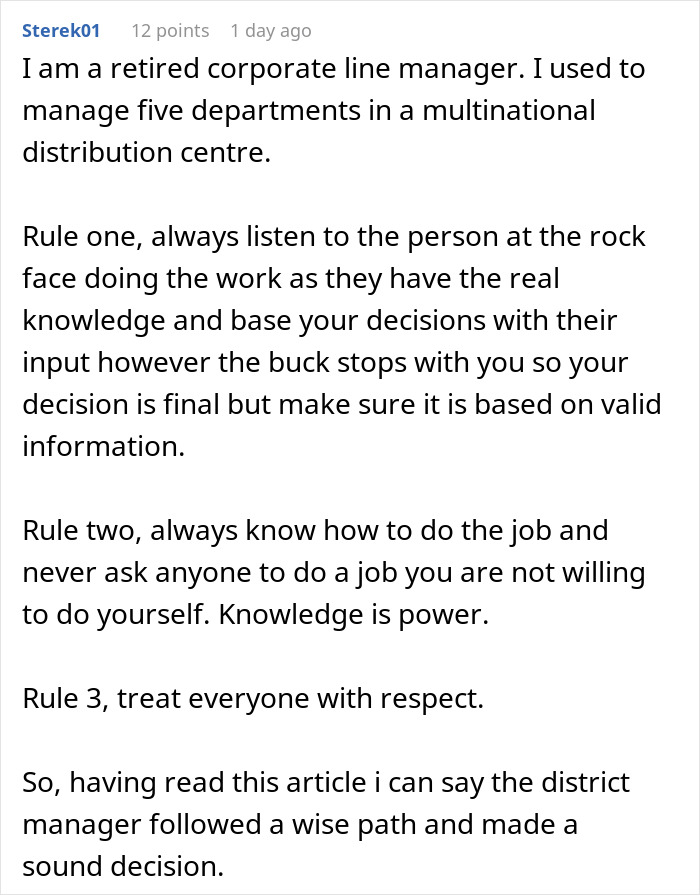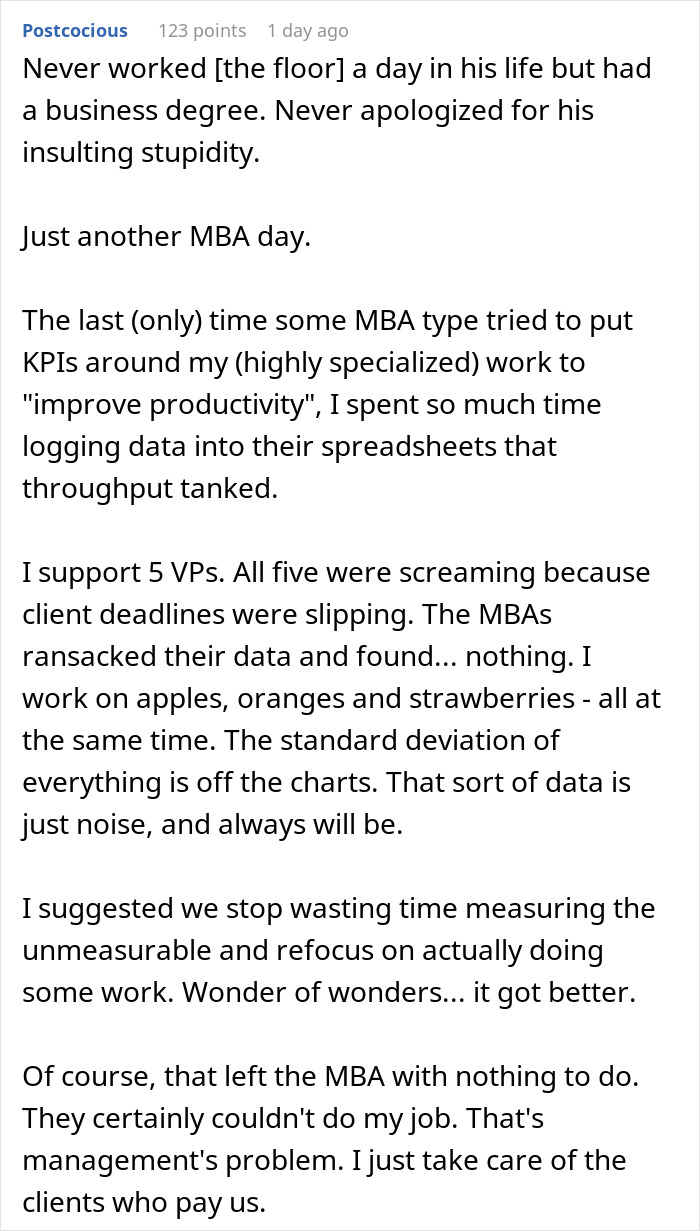One of the signs of a good workplace leader is that they’ll support their staff. However, that requires a lot of awareness and emotional intelligence. You can only step in to help if you realize there’s a problem, say, with overwork and burnout.
Unfortunately, some bosses misinterpret the situation. Where there’s exhaustion and excessive workloads, they might see ‘laziness.’
That’s what happened to u/Theory_Large. They shared how their old boss accused them of being useless and started to shadow them to teach them the ropes. It was only then that the manager realized just how much work the employee was actually doing.
Scroll down for the full story and the net’s reactions. Bored Panda reached out to the author of the post, u/Theory_Large, and they were kind enough to answer our questions about what happened. Check out the full interview below!
Good managers find ways to support their staff, while bad workplace leaders look for whom to blame

Image credits: dvatri / envato (not the actual photo)
One overworked and helpful employee shared how their boss accused them of laziness and uselessness. Here’s what happened next
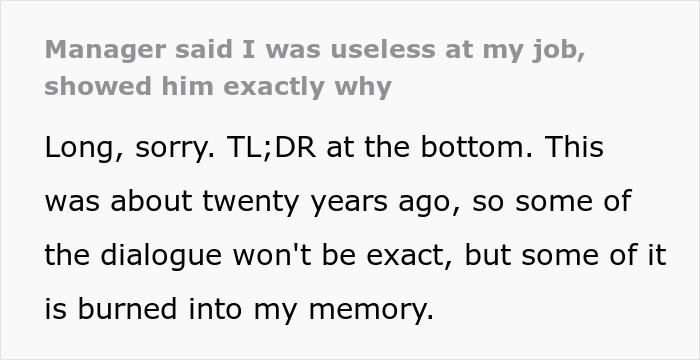
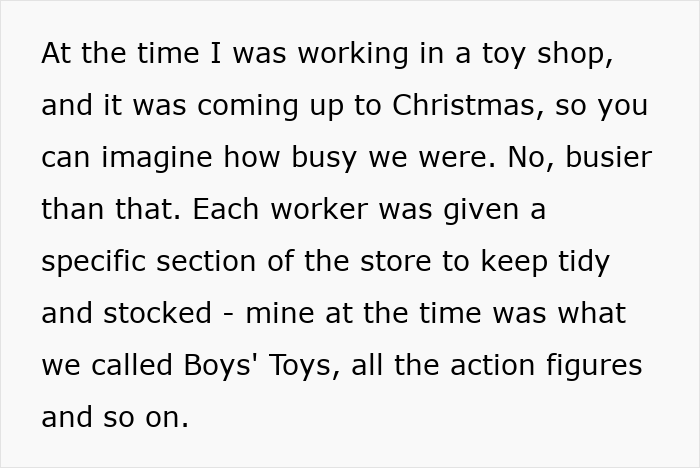
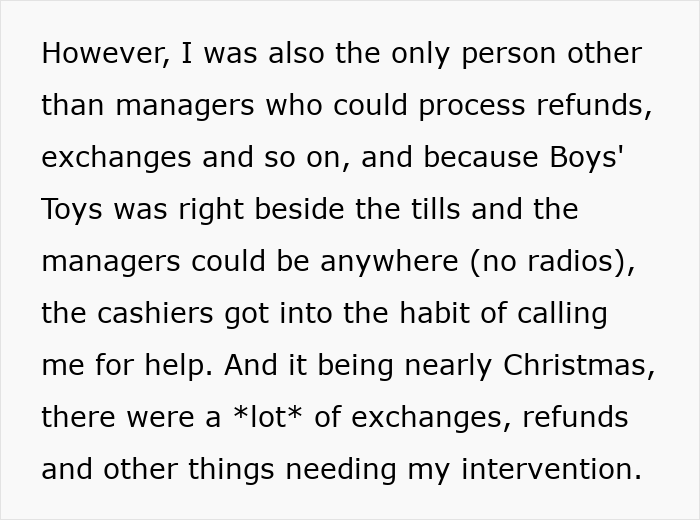
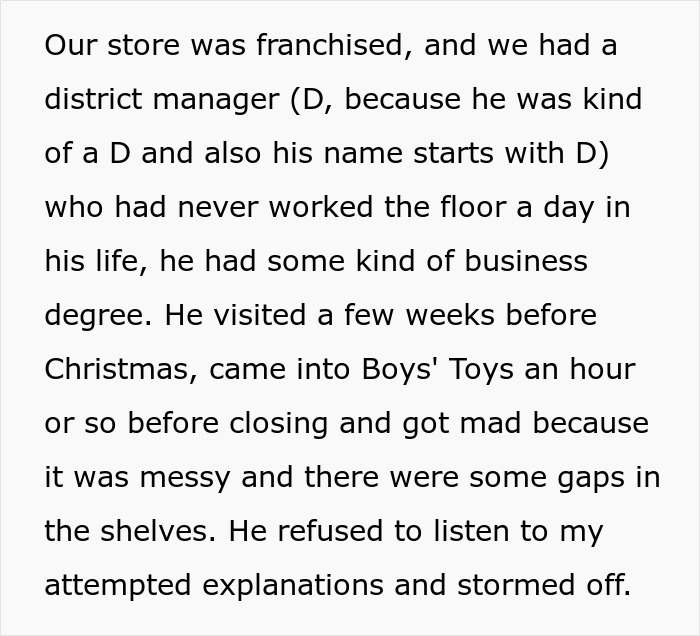
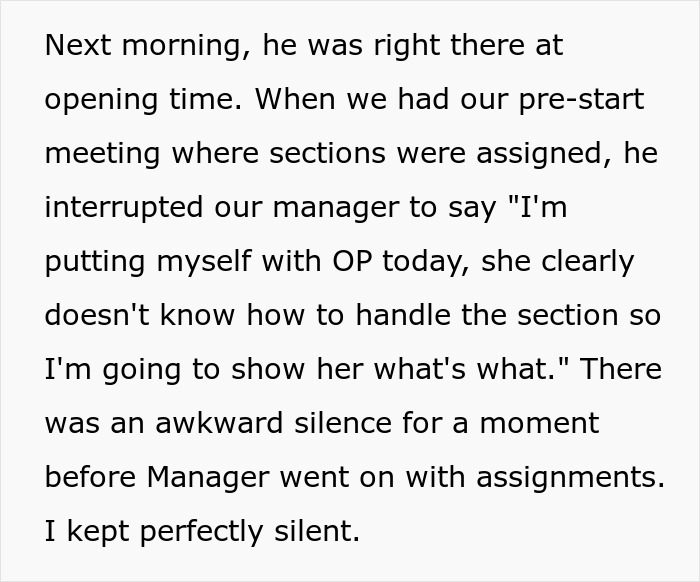

Image credits: NomadSoul1 / envato (not the actual photo)

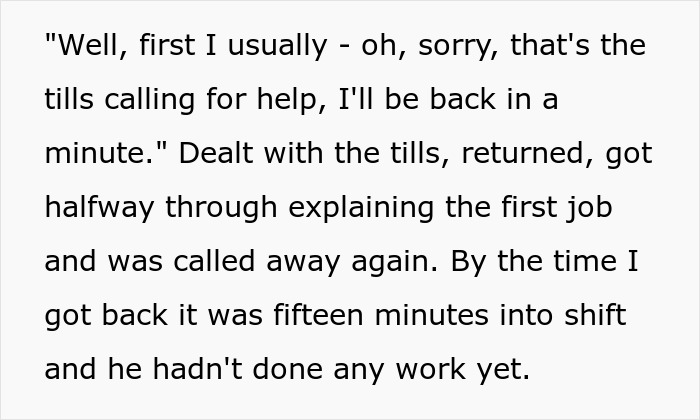
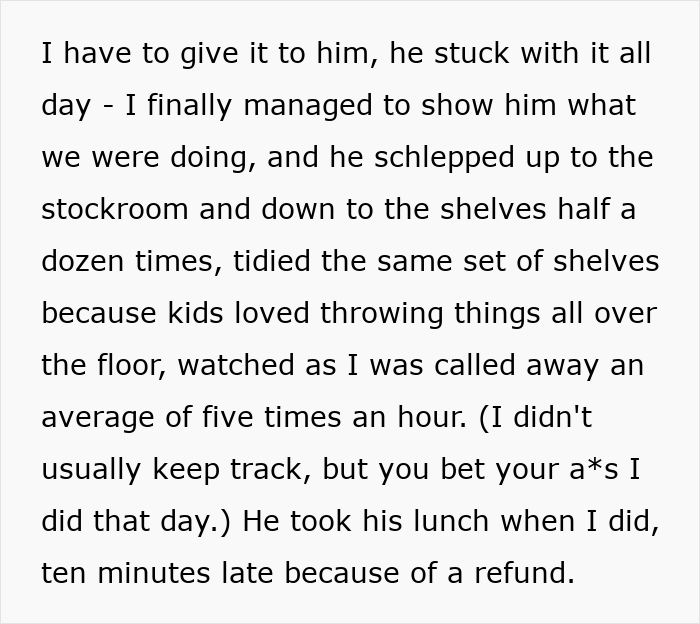
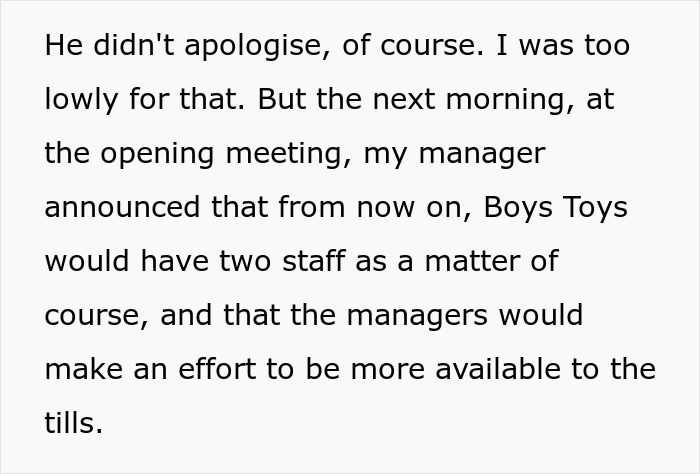

Image credits: Theory_Large
“A great manager needs to listen to their staff, and be willing to pitch in”
“D was the kind of manager who thought he knew best at all times. He did legitimately have some kind of degree, but as I said, he’d never worked the floor. He was related to the family who started the chain; I never quite figured out the exact relationship,” u/Theory_Large told Bored Panda.
“He saw a messy section I was in charge of and assumed I just wasn’t bothering. Earlier in my time there, I was assigned to a section with a till, and he used to complain that the shelves were messy when I was literally on the till my whole shift. I don’t think he was malicious, exactly; he just got these ideas and never looked past them,” they said.
“Later, he took away my ability to do refunds and exchanges because I’d looked at the handbook and realised I should be on a higher wage to do them, but he never actually told me he’d done that. I went to help an already upset customer, and my logins weren’t working, which didn’t help the customer’s mood!” the author told Bored Panda.
Meanwhile, they were happy to share their thoughts on what good management actually looks like. “A great manager needs to listen to their staff, and be willing to pitch in and work on the floor, in the warehouse, wherever it is needed. Anything they’re asking staff to do, they should also be willing to do,” u/Theory_Large said.
Furthermore, subtlety is also key. “They should also not berate their staff in public. D told all my colleagues that I couldn’t handle the work, and he never retracted that. Some of them thought I was useless until they left. Praise in public, scold in private. And if you can’t manage the public part, at least tell the worker themselves!”
Emotional intelligence is underrated. Managers who can’t empathize with their staff will end up pushing top talents away

Image credits: ckstockphoto / envato (not the actual photo)
An unwillingness to listen to your employees, misinterpreting situations, and being unable to apologize all indicate that someone probably has low emotional intelligence (aka EQ or EI).
EQ refers to a person’s ability to understand and manage their own emotions, as well as those around them.
According to the Harvard Business School, you can strengthen your emotional intelligence skills in the following ways:
- Practice active listening, where you’re focused on what the speaker is saying. If you’re ignoring the other person’s perspective and just waiting for your turn to speak, you’ve got a problem.
- Reflect on your emotions and analyze what might have sparked a particularly strong emotional response so that you’re better equipped to manage yourself in the future.
- Take up journaling where you reflect on how your emotions influenced your decisions and interactions every day.
- Undergo a 360° assessment during which feedback from your coworkers helps you identify gaps in your leadership.
- Start some sort of course, whether in-person or digital, to improve your EQ.
“Leaders set the tone of their organizations. If they lack emotional intelligence, it could have more far-reaching consequences, resulting in lower employee engagement and a higher turnover rate,” Harvard Business School warns, stressing that even if you’re good at your job, your skills may get overlooked if you’re a poor communicator or not a team player.
Toxic bosses tend not to care what anyone else thinks, are bad at active listening, and are resistant to honest feedback

Image credits: reezky11 / envato (not the actual photo)
Having a toxic workplace leader in charge of your department isn’t just bad for your physical and mental health, but it also has a negative impact on the company itself.
“Toxic leaders are damaging to mental well-being because of the impact they can have on a number of areas important to the working experience of an employee. From their feelings of value and competence to their perception of their social standing and connection with colleagues,” organizational psychologist Ella Washington, PhD, explained to Verywell Mind.
Furthermore, toxic bosses generally result in poor job satisfaction, anxiety, depression, mental health issues, increased burnout, bad work-life balance, and weak office morale. They also damage the company’s reputation, harm productivity, and lead to a high rate of employee turnover.
The main red flags that you’re probably working under a toxic workplace leader include behaviors like them constantly criticizing you, taking credit for your work, disrespecting you and your colleagues, and micromanaging everyone.
What’s more, toxic managers tend to play favorites with preferential treatment, don’t listen to others, ignore feedback, and aren’t interested in taking responsibility.
How would you react if your manager suddenly accused you of being ‘useless’ and ‘lazy’? When is the last time your boss seriously misjudged a situation, only to end up embarrassing themselves?
What do you value the most in a truly great workplace leader? How do you push back against burnout and overwork? What’s the worst manager you’ve ever had? We’d love to hear your thoughts on this important topic. Grab a drink or a snack and share your opinions in the comments below.
The story got a lot of attention. This is what some netizens said about the situation the worker found themselves in
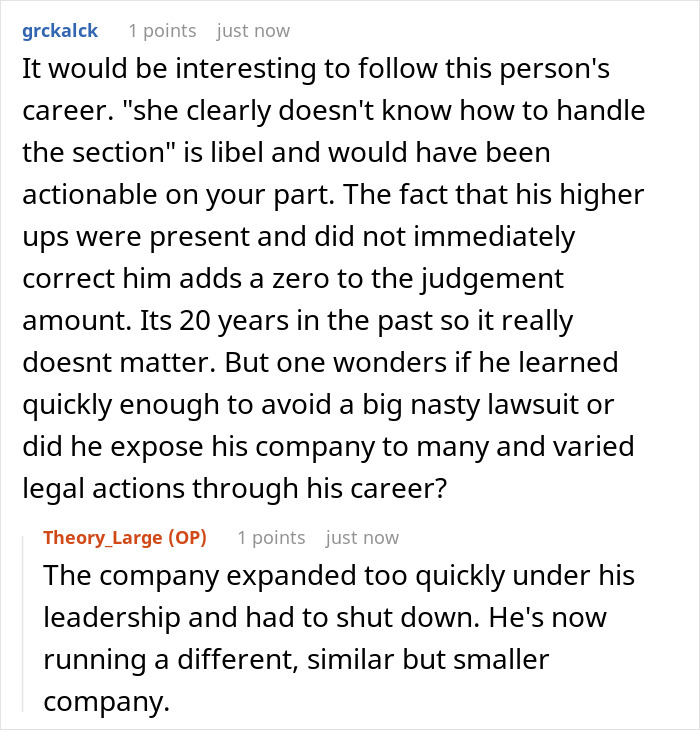


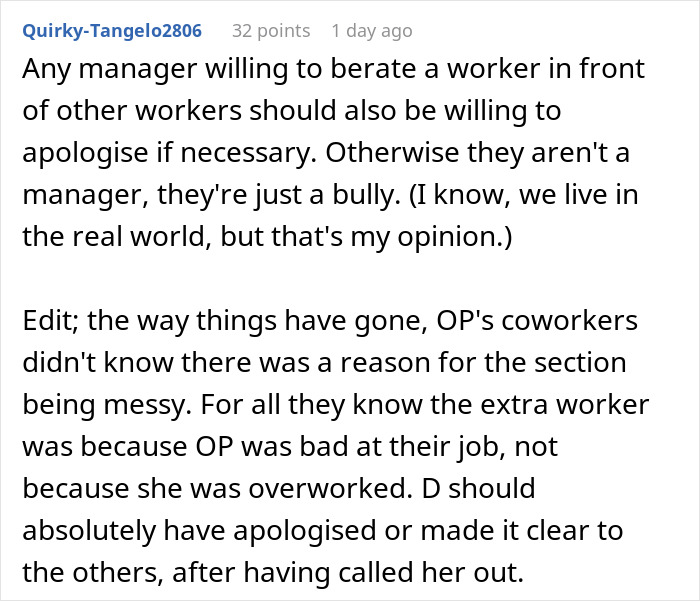
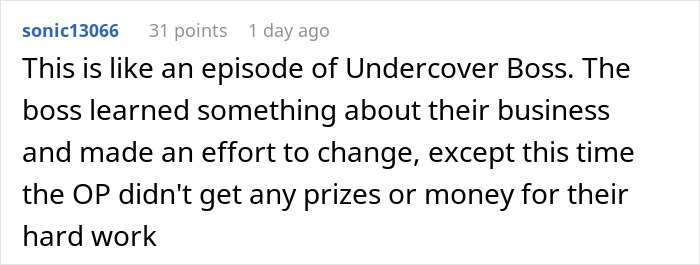


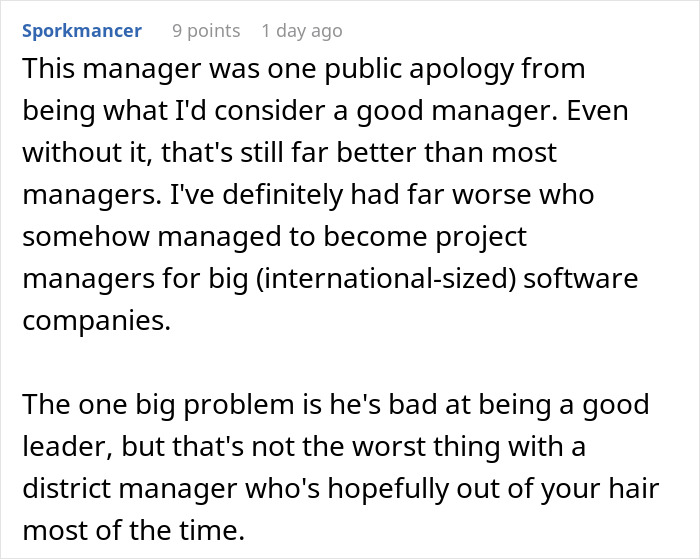
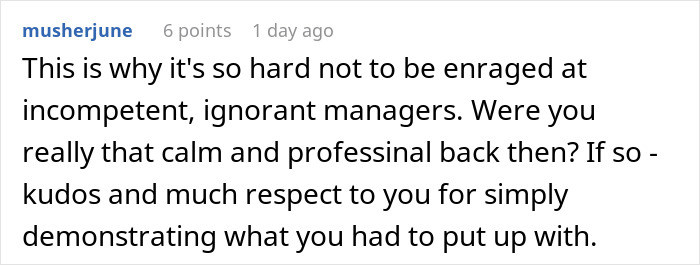
However, not everyone saw it this way. Some folks came out to support the manager instead

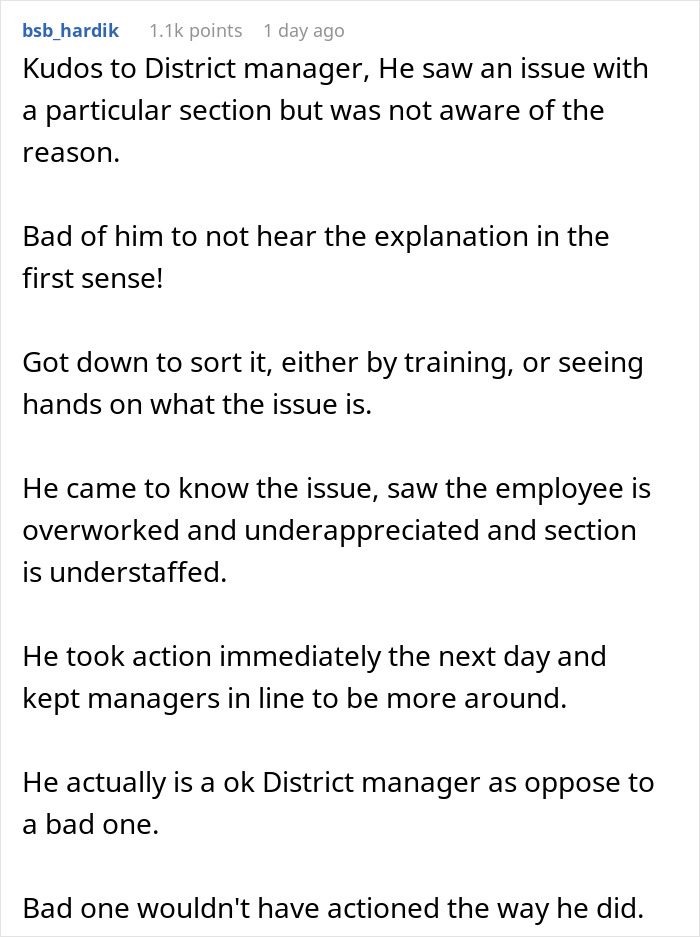
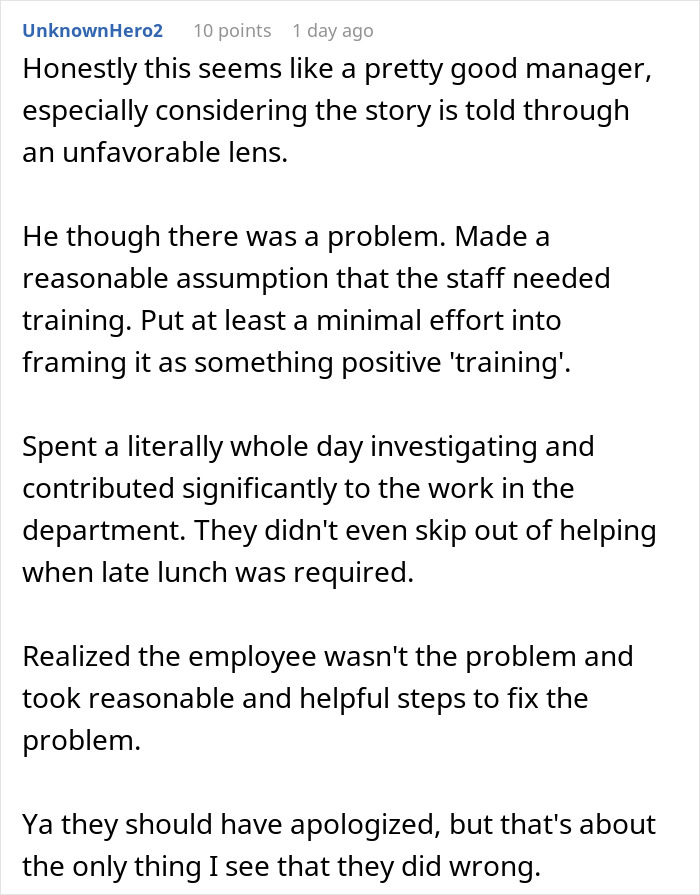


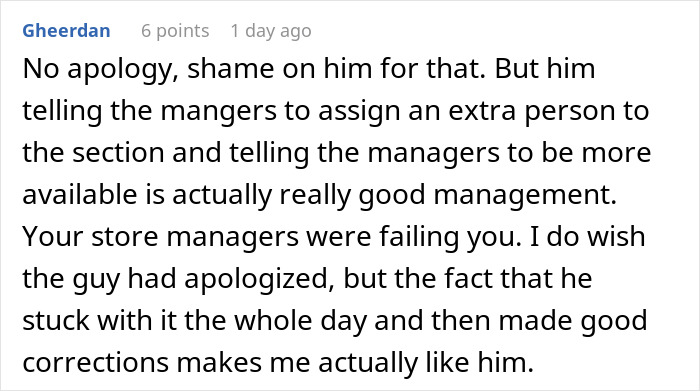

Unfortunately, this situation isn’t unique. Other people have faced similar situations in the job industry
